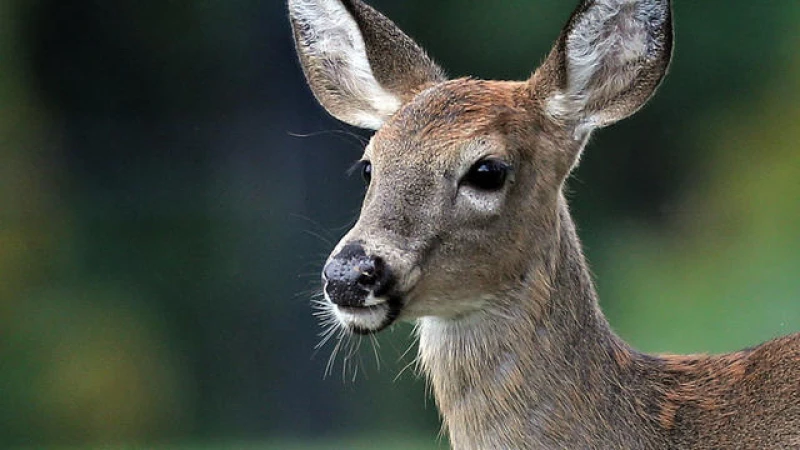Recent findings have suggested a potential connection between the tragic deaths of two hunters in recent years and a rare neurological condition. A study, conducted by medical specialists from the University of Texas at San Antonio and recently published in the clinical journal Neurology, indicates that the individuals may have contracted the illness by consuming venison from deer affected by chronic wasting disease, a degenerative condition not definitively proven to be transmissible from animals to humans.
Both hunters had visited the same hunting lodge and eaten meat from the same deer population before succumbing to Creutzfeldt-Jakob disease and passing away shortly thereafter, according to the report's authors. The specific location of the lodge was not disclosed. Creutzfeldt-Jakob disease is classified as one of several prion diseases — rare neurodegenerative disorders in humans characterized by abnormal protein folding in the brain, as outlined by the Centers for Disease Control and Prevention. Symptoms of these diseases often resemble those of dementia, although patients with Creutzfeldt-Jakob disease experience a much more rapid decline.
The new study centered around the initial death of a 72-year-old man in 2022 who "presented with rapid-onset confusion and aggression," the authors said. That man apparently had a history of eating meat from a deer population known to be infected with chronic wasting disease. His friend, who had eaten venison from the same deer population, died later from Creutzfeldt-Jakob disease.
The friend's death came within a month of him developing symptoms typical of the illness, like seizures and agitation, according to the study, and a postmortem ultimately confirmed his diagnosis with a variant form of it called sCJDMM1. Authors said that finding may point to "a possible novel animal-to-human transmission of CWD," although they acknowledged it did not definitely prove that consuming venison from a deer infected with chronic wasting disease eventually caused Creutzfeldt-Jakob disease in any human being. But that possibility could not be definitively ruled out, either.
Prion diseases, including Creutzfeldt-Jakob disease, can have long incubation periods but progress rapidly once symptoms start to present themselves and are always fatal. While they are not well understood, exposure to certain pathogens that then trigger the brain proteins to fold is believed to be the cause.
Creutzfeldt-Jakob disease, according to the Mayo Clinic, can manifest in four different ways: sporadically, the most common form, where the disease develops without a clear trigger; through inheriting specific genetic changes that lead to the development of prion proteins; via contaminated medical instruments used during surgeries or other medical procedures, a rare occurrence; and by consuming contaminated beef, an even rarer occurrence.
A variant form of Creutzfeldt-Jakob disease has long been linked to consuming beef from cattle infected with mad cow disease, or bovine spongiform encephalopathy, which is another prion disorder. The connection between infections in cattle and humans who consumed beef from those cattle gained global attention when government health officials in the United Kingdom publicly acknowledged it in the 1990s, following a series of disease outbreaks.
While chronic wasting disease, like mad cow disease, belongs to the category of prion disorders affecting animals, experts have stated that there is no strong evidence to suggest that prions associated with chronic wasting disease can infect humans. Nonetheless, significant questions remain about the transmission of the disease across species, and a few experimental studies have indicated that chronic wasting disease may be transmissible to primates. In a discussion regarding prion transmission, the CDC notes that, although experimental, these studies "raise concerns that CWD could pose a risk to humans and emphasize the importance of preventing human exposure to CWD."
Chronic Wasting Disease Found in Deer Population
Recent reports have indicated that hundreds of deer in Minnesota have been diagnosed with Chronic Wasting Disease (CWD) over the past two decades, with most cases concentrated in the southeastern region of the state. The news, originally covered by CBS Minnesota, highlights the concerning spread of the illness among the local deer population. Additionally, last year, authorities in Wisconsin confirmed a case of CWD in a captive deer, while officials in Yellowstone National Park made a similar discovery in a wild deer, marking the first instance of the disease in that area.







